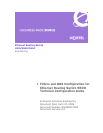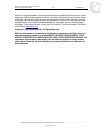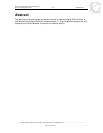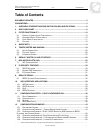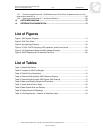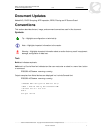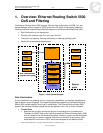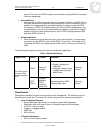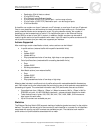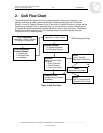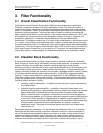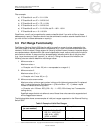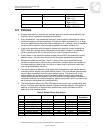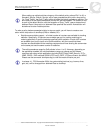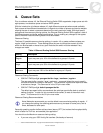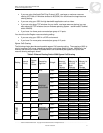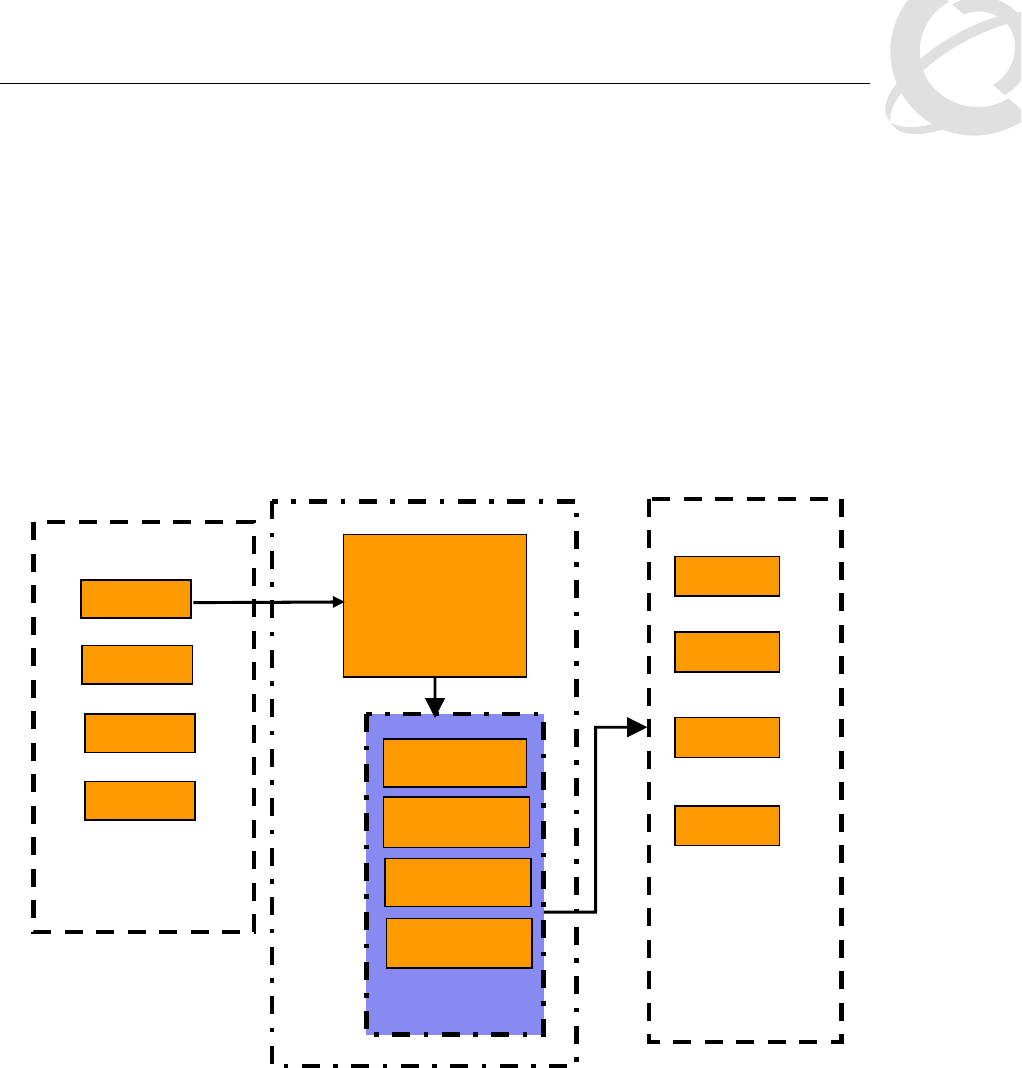
Filters and QoS Configuration for ERS 5500
Technical Configuration Guide v2.0 NN48500-559
___________________________________________________________________________________________________________________________
Nortel Confidential Information Copyright © 2008 Nortel Networks. All Rights Reserved.
External Distribution
6
1. Overview: Ethernet Routing Switch 5500
QoS and Filtering
The Ethernet Routing Switch 5500 supports QoS and filter configuration via WEB, CLI, and
Device Manager with no support for COPS at this time. As shown in the diagram below, the
following functional components provide QoS support on the Ethernet Routing Switch 5500:
• Role Combination on the ingress port
• Classify traffic at either Layer 2 or at a Layer 3/4 level
• Take action by dropping, marking, redirecting, or metering (policing) traffic
• Send traffic to appropriate egress queue
Figure 1: QoS System Diagram
Role Combination
A role combination is a grouping of one or more ports, capabilities, and interface classifications
against which a policy is applied. The capabilities presently supported on the Ethernet Routing
Switch 5500 include ingress IP and Layer 2 classification. The Ethernet Routing Switch 5500
supports the following interface classes that can be applied to zero, one, or many interfaces:
• Trusted Ports
o Assumes that all traffic coming into the port is originating from a trusted source.
Therefore, the DSCP field of any traffic that enters the Ethernet Routing Switch 5500
from a Trusted Port is not remarked by default. However, a policy can still be applied
to a trusted port to remark if required. Note that only the 802.1p user priority value
associated with ‘well-known’ DSCP values are remapped by the default trusted
Port
Classifier
Meter
Marker
Dropper
Queue
Redirecto
r
Actions
Counters / Statistics
Role Combinations
(ingress port group)
Egress
ports
Port
Port
Port
Queue
Queue
Queue



